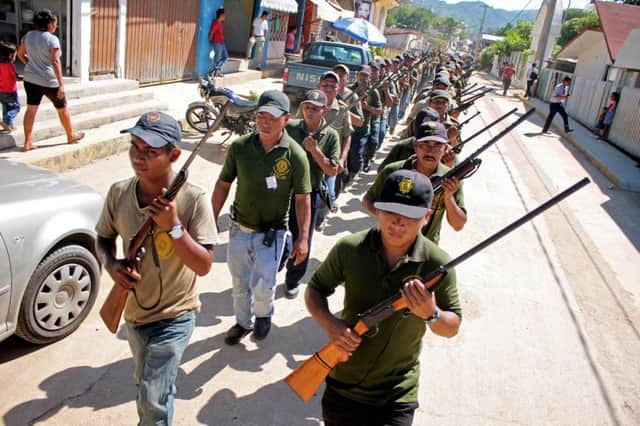Families of lost Mexico students won’t believe deaths


It is traditional for Mexicans to set up altars to the dead and buy orange cempasuchil flowers to adorn their offerings of food and drink.
But there will be no altar on the 1-2 November Day of the Dead observance for Mauricio Ortega.
Advertisement
Hide AdAdvertisement
Hide AdHe was 18 when he and the other students were taken away by police in the city of Iguala in September last year and, according to government prosecutors, turned over to a drug gang who killed them and incinerated their remains.
Charred bone fragments have provided a match to only two of the students.
Mauricio’s father, Meliton Ortega, shakes his head when asked if the family will set up an altar to his son.
“No, for us, our sons are alive,” he said. “It’s not the way the government says, that we should just accept our grief.”
Parents of the missing students have come up with other ways to mark their sons’ disappearances.
At the radical rural teachers’ college attended by the young men, known as Ayotzinapa, plastic chairs with their names and photos are arranged in rows, a stark reminder of those who used to sit there.
Their possessions have been left largely untouched, as if awaiting their return.
After more than 13 months since their disappearance, that seems unlikely.
Advertisement
Hide AdAdvertisement
Hide AdAnd some, like former Mexican president Vicente Fox, have said the parents “can’t live eternally with this problem in their heads ... they have to accept the reality”.
Clemente Rodriguez, the father of missing student Christian Alfonso Rodriguez, said those who tell the families that their children are dead “are people who don’t have a heart” or who work for the government.
A report by an independent panel of experts concluded that the students’ remains could not have been incinerated at a rubbish dump as prosecutors argue. Parents insist their sons are alive and, with little proof, assert that the young men are being held at military bases.
As a way to remember his son, Mr Rodriguez has begun collecting turtles, the mascot of the Ayotzinapa school.
He has tattooed a turtle on his left arm, and says: “The day my son comes home and says, ‘Dad, why didn’t you look for me,’ I’ll say, ‘No, son, look, I have a permanent mark... that ever since you disappeared in 2014, I have looked for you.”
Meanwhile yesterday, the US ambassador to the United Nations said that Mexico needs to produce results in cases like the 43 missing students and alleged incidents of extra-judicial killings to show its commitment to human rights.
Ambassador Samantha Power said “the will is there,” after three days of meetings with top law enforcement and citizens’ groups around crime, violence and judicial reform in Mexico.